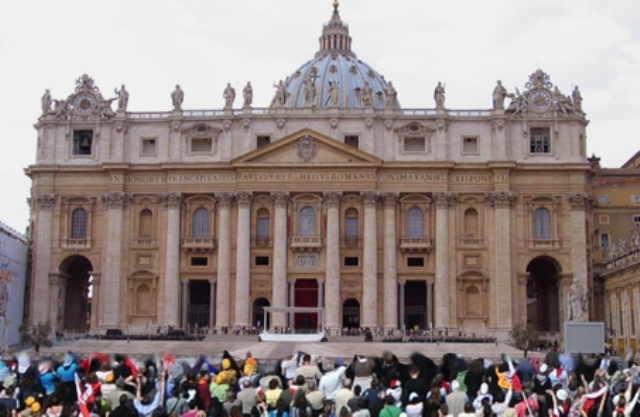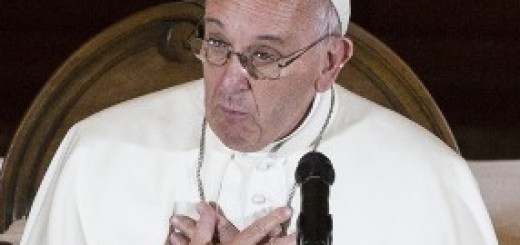The Cul-de-sacs of Christianity!

(Cul-de-sac means: blind alley, dead end, route or course leading nowhere)
By Varghese Pamplanil

 This much researched article makes us conscious of the many trespasses Christianity is guilty of. In the west, this religion has lost its soul and in the east it is engulfed in blind beliefs and meaningless ceremonies, which make it very difficult for the intellectually growing youth of the present day to cope with it. In fact Christianity is drawing in its last breaths.
This much researched article makes us conscious of the many trespasses Christianity is guilty of. In the west, this religion has lost its soul and in the east it is engulfed in blind beliefs and meaningless ceremonies, which make it very difficult for the intellectually growing youth of the present day to cope with it. In fact Christianity is drawing in its last breaths.
Even its ‘credo’ codified in the fourth century contains what is in no way compatible with human reason. Blind faith is no more going to be the fitting instrument in the hands of the savage corps who might still want to save Christianity from total peril. – zacharias nedunkanal, asso. editor.
Note from ccv editor: “Cul-de-sac means a dead end.”
 This note is just to refresh the memories of those who were with the CCV from its beginning Nov.6, 2014 and for the information of the late comers to the CCV at various stages ever since it came out, as an off shoot of the original Almaya Sabdam in Malayalam which was started on Nov.11, 2011.
This note is just to refresh the memories of those who were with the CCV from its beginning Nov.6, 2014 and for the information of the late comers to the CCV at various stages ever since it came out, as an off shoot of the original Almaya Sabdam in Malayalam which was started on Nov.11, 2011.
When that frog in the well (Almayasabdam in Malayalam) confined to Kerala and talking to Malayalam speaking people around the globe, wanted to leap out of that well into the wide open sea enveloping the whole world, the organizers decided to switch over to an English edition and thrust the Chief editorship to james kottoor who christened the new edition as: CCV (Church Citizens’ Voice) on Nov.6, 2014. So CCV is an outgrowth or child of the Mother, Malayalam ‘Almayasabdam’
he original Malayalam ‘Almayasabdam’, is still youthful and going strong, catering to those who read only Malayalam or relish to read Malayalam around the world
The two towering personalities pulling the strings or did the brain work behind the scene for the English edition, were Jose Mattappally and Zac Nedunkanal, both gifted writers in Malayalam and were very active in the Original Almayasabdam, while Kottoor appeared in it only once in a way as he is no good in Malayalam. So Jose the Chief organizer pressed a reluctant Kottoor to take up the Chief Editorship and he thus became the Cheap editor as none of us are working for a penny and Zach volunteered to become as Associate editor together with Jose Mattapply for the purpose of allocating portfolios.
During the course of its journey Isaac Gomes from Kolkata, now all too familiar to readers, came in as an added luster of universality to CCV, and continues giving commendable contribution as the third Associate editor. That is the brief detailed report on the origins of CCV. Please read also the second attachment: “CCV Editors,Church Citizens’ Voice! An all-English Portal-CCV Why?” to know about our humble origins.
Pamplanil’s article
To make the long story short, all this is to say that our friend Varghese Pamplanil is not a new comer. He wrote the article below in CCV first on 6/12/2015 which many of our present readers may have missed. Hence it is published a second time, as it is very relevant in today’s culture of transparent public discussion of all controversial issues.
To live is to change and so, whether we like it or not, we all are changing constantly. Long ago Cardinal Newman said: “It may be different in a higher world, but here below, to live is to change, and to be perfect is to have changed more often.”
Living in a fast changing world, it would be both instructive and rewarding to compare our present day thinking with what we thought years ago or with the out-of-box thinking and frankly speaking of persons like Pamplanil to see what we can digest, what we can’t and why(?) because none of us want or wish to be unreasonable, least of all appear to the public to be so.
The BIG question therefore is not whether we have changed or not – we all have – but in what direction: towards perfection or perdition and how fast! james kottoor, editor ccv.
Please read below Pamplanil’s article
Any unbiased study of the Christian religion may lead to the view that it is made up of layers and layers of riddles and imponderables. Inconvenient facts appear to have been papered over and obscured and opaqued as articles of faith and unfathomable mysteries by the Church.
It is, no wonder, that large numbers among Christians themselves are not convinced of its dogmas, theology and philosophy. They even doubt the very existence of its founder referred to as Jesus of Nazareth.
The Christian Church, which was declared as the state religion of the Roman Empire towards the end of the fourth century, connived with the emperors and kings of Europe – ruling by 'Divine Right' – to roughshod the ordinary populace to make the Christian god and the Christian religion as the sole authority to rule over Europe.
The Popes assumed the role of both spiritual and temporal rulers of Europe during the first millennium when the Roman Empire had became militarily enfeebled. Much of the efforts of the Church was spent on consolidating its sway in the temporal domain. Its fortunes which had declined with the demise of the Holy Roman Empire, but the discovery, colonisation and Christianisation of South America by the Spaniards enhanced its sway.
The opening of the sea route to India by the Portuguese facilitated the growth of the Church’s influence in many parts of Asia. However, the financial clout of the Church weakened on its loosing suzerainty over large areas of Italy with the country’s unification in the late 19th century.
The view of the Christian religion of itself even today is that it is the sole custodian of true faith and it alone possess the way for human salvation. It firmly believes that all other beliefs, religions and cultures are patently wrong and erroneous and it has the divine right to convert and overwhelm and lord over the whole world.
 The Church claims its authority on “revelations”: which to any rational mind are far fetched, unsubstantiated, dubious and illogical. There is telltale dichotomy and discrepancy between the Church’s teachings and its actual practices. Its public face hides the murky goings on behind the thick walls of Vatican away as glaringly revealed and exposed by the recent Vatileaks. In earlier times, Rome could insulate itself from public oversight about the debaucheries, skulduggeries and other indulgences of venal passion, murders et al in the Vatican behind the smokescreen of self proclaimed “holiness”.
The Church claims its authority on “revelations”: which to any rational mind are far fetched, unsubstantiated, dubious and illogical. There is telltale dichotomy and discrepancy between the Church’s teachings and its actual practices. Its public face hides the murky goings on behind the thick walls of Vatican away as glaringly revealed and exposed by the recent Vatileaks. In earlier times, Rome could insulate itself from public oversight about the debaucheries, skulduggeries and other indulgences of venal passion, murders et al in the Vatican behind the smokescreen of self proclaimed “holiness”.
Now, the Holy Spirit operates more through the internet than by the messenger angels. The double faced Janus is no match for the coterie of scheming Curia and other cabals in the Vatican with their double speak and questionable dealings. The Church masquerades with a ‘holier than thou’ attitude on an unstable pedestal made of shifting sands of dubious shenanigans.
The aim of the Western colonists was plundering the wealth of the new found South America and Asia by resorting to widespread killings, rampant looting and forceful conversion of the indigenous people to Christianity by use of the sword. While the Spaniards held sway over South America including Mexico, excluding Brazil, the Portuguese colonised Brazil and parts of Asia with the Church’s blessing. Later the Dutch, the French and the English vied with each other to control and dominate the trade in spices produced in Asia, vital for the diet mostly based on meat. Eventually the traders became the political masters of these lands because of the superior weaponry they possessed.
The Christian religion was generally utilised by the occupying powers to consolidate their position by creating a segment of population loyal to them by bringing them under Christianity. Thus one can come to the conclusion that the Christian religion piggy rode the occupation forces. Conversion of natives to this foreign religion was a tool for the subjugation of the people living in the colonised territories. The spreading of the Christian message was only a pawn in the power game of the occupiers.
Vast tracks of Africa were annexed by the European powers for its raw materials and as markets for their finished products. The traders went first, the missionaries followed and the soldiers captured and annexed these lands and hegemony established. Loyalty to the occupier’s religion out of alignment with the local culture created fissures in the social fabric. The alien religion’s claim of superiority over beliefs of the land resulted in social turmoil and consequent tensions and asymmetries in the occupied countries. The arrogance of the Christian religion that it is the “only way to salvation” and its aggressive efforts for evangelisation are viewed with suspicion in countries like India.
The brown and the black people carry on their shoulders, the burden of the white man’s abandoned beliefs and practices. The typical example is the Catholic faith which has few takers in Europe including Italy. The bastion of Catholicism today is Africa and Hispanic Latin America. Its hold in Asia is limited to the Philippines. The haughty demeanour and puffed up ego arising out of the feeling of exaggerated self importance exhibited by the “eminences” of the “frog in the well” Syro-Malabar, Church, hide the stark reality that the outfit they preside over is only an insignificant dot in the total scenario of world Christianity. “Pottakkulathil pulvan fhanindran, thattin-purath moozhikan mrugarajan”(Like the small fish in the empty pond and the animal king on home cealing).
In the jungle of terminological inexactitudes, one cannot perceive the kernel of truth. But who cares, especially in the economically deprived, desease infested, ignorant, uneducated, anxiety ridden, superstitious third world? The faithful in these regions have their daily quota of the opium of religious nostrums and archaic rites for creating euphoria and bliss of oblivion. The Catholic Church does not walk with the people. It doesn’t opt for companions and comrades, only obedient followers.
The Christian religion perpetuate a system at odds with human nature. Its focus is the nebulous other world and life after death. The problems of the living are not its major concern. It hardly strives for the improvement of human condition, despite tall claims on the contrary. Its major occupation is dispensing rituals. Deeds of general goodness, compassion and care for the benefit of fellow beings are left aside and replaced by plethora of rituals, inanities and verbiage. Its leadership is not generally open for discussion. Dialogue is anathema and is ever frowned, discouraged and often suppressed with ferocity. The Church enjoins upon its followers to accept every pronouncement of it as “absolute truth” without demure.
Free philosophical speculation had been waging wars in Europe from the pontificate of Clement VIII in the last decade of the thirteenth century ceaselessly but was suppressed till the middle of the sixteenth century by the all powerful Church by subjecting dissenters to torture with the instruments of inquisition such as burning alive at the stake, torturing with the rake, the strappedo , the pulley etc. “Inquisition burns and tortures in order to perpetuate a creed, a ritual and an ecclesiastic-politico-financial organisation regarded as necessary to man’s salvation” ( Aldous Leonard Huxley)
The Christian Messiah’s real name does not seems to be Yahushua or Jesus or Joshua (meaning “saviour). His actual persona lies buried deep and shrouded in the unknowable. While the historical evidence point to an individual, who had lived in Galilee, one among the many Messiahs of the time, in the early half of the first century of the Common Era (CE). Historians surmise that he was born near about the beginning of the CE.
The Jesus or Joshua presented in the Christian literature is a Church made artificial personality verging to a mystical and mythical one; an amalgam of many Messiahs of the period, hiding the real one of history. His personality was remodelled by the Church to suit its requirements. The “glutton and winebibber” from the rustic Galilee was elevated to “Christ the King and God” in the model of a Greco-Roman god when Christianity became the imperial religion of the Roman Empire in the fourth century. Only an Olympian God was acceptable to the Roman nobility . Thus the real being of history, now paraded as Jesus Christ, is shrouded in obfuscation and obscurity.
“From the New Testament miracle stories to this day, Christianity has evolved into a miracle religion, and during this evolution, it has taken refuge in ever more bizarre curiosities and abstruse notions. This has become the standard of Christian religious understanding, so much so, that nowadays a person who refuses to believe in anything but Jesus and his resurrection is a heretic in the eyes of the Church”. (Uta Ranke-Heinemann, Ph.D Professor of Catholic Theology at the University of Essen, Germany till 1987, the first woman to do so, and later holder of the chair for History of Religion at Essen).
The hour, day, month and the year of the death of the teacher from Galilee are not specified by none of the Evangelists. Just as his date of birth, the day and date of his death is vague. “A glance at the impossibilities and imponderables that we find in the Gospel accounts of Jesus’ birth will suffice to show their historical in-credibility” (Uta Ranke – Heinemann ibid).
Precious little is known about his personal life. The fact that neither Philo Judaeas of Alexandria or the Jewish historian Josephus, both contemporaries of the Galilean, did not make any mention of him is significant. His activities were probably confined to the territory of Galilee except for the tragic final foray to Jerusalem. The story of multitudes following him, his feeding of the five thousand with a few fishes and limited loaves of bread are later embellishments to lionise him and to add to his aura. The much acclaimed Sermon of the Mount was foisted on him later to enhance his prestige according to many learned Bible commentators.
Crucified!
He could have been crucified on pole or a stake. The cross, a pagan motif, was adopted as the symbol of Christianity and an object of worship only after Constantine’s time. Crucifixion, derisively called “hanging from the tree” was reserved for slaves and the worst criminals or enemies of the Empire. For maximum impact, crucifixion was done along public highways or other visible areas as lesson for the potential enemies of Rome or incorrigibles.
On an average, two thousand or more crucifixions were routinely done by the Roman state in its occupied areas in a year. Death happened slowly with excruciating pain unless the victim was severely beaten or scourged; corpses were made to rot away and the flesh eaten by carrion birds and other scavengers. It took considerable time to explain and rationalise the Galilean’s tragic end of “ hanging from the tree” and to portray it as an act of atonement for the “Sin of Adam” (of disobedience) by the “God Incarnate” for the redemption of the humankind.
A careful analysis of the Galilean’s sphere of activities would indicate that they were meant only for his people inhabiting the area; and at any rate did not extend beyond the boundaries of Israel. Even in his wildest dreams, he would not have ever imagined of establishing any church, let alone an absolutist monarchical church with an Emperor Pope with royal splendour. His aim would have been to deliver his people from their miserable lives, groaning under the yoke of Rome and the exploitation of the predatory priest-hood of Jerusalem of the time.
He believed rashly that he could cause the collapse of the Roman suzerainty over the people of Israel, who had escaped from the Babylonian captivity in the not so distant past. He naively thought that he could liberate his fellow men from their miserable existence with the arrival of “end times” of the terrible world of the day by the ushering in of the “Kingdom of God”.
After the elapse of considerable time, the rump elements of his followers, who had ran away and hid in the darkest corners to save their skins from the wrath of the Sadducees and the horrible prosecutions of the Romans, could have got over their abject fears and regrouped under the leadership of the Galilean’s brother, James (the Just), along with Peter and John, organised a community of fellowship and found sanctuary in the Jerusalem temple. This small band known as the “Nazarenes “ or Ebionites waiting for the “end times” and the “Kingdom of God”. No one would have believed that their executed teacher was God’s only begotten son, born of a pristine virgin without the involvement of a man.
Paul of Tarsus
Enter the scene, in the early 40s of CE, around one and a half decade after the crucifixion of the Galilean, Paul of Tarsus, a Roman Citizen, diaspora renegade Jew attuned to Hellenistic ethos with a far fetched and unbelievable claim of encountering the resurrected “Christ” who, according to the Christian legend, bodily ascended the heaven after forty days of his alleged resurrection.
“If Christ has not been raised, then our preaching is in vain and your faith is in vain”(I Corinthians 15:17). What an improbable, if not impossible, event the bodily resurrection of a person dead and buried for three days. An edifice has been built on the basis of the fevered hallucination of a lone individual.
To insist that every human being on planet earth should, on pain of death; at least excommunication or reprobation, subscribe to the most improbable event of resurrection is the nadir of mental disequilibrium. Which apparition the hallucinated brain of Paul given shape to is the unresolved riddle. Paul never met the Galilean in person; hence would not have even a hazy idea of how he looked like to confirm the ghost he thought he saw was not that of one of his bygone ancestors, whose image could have been indelibly etched in his subconscious. It is surprising that the Christian theology still persist with the ramblings of Paul’s fevered brain. What an anachronism is Christianity the contours of which have been shaped on the basis of untenable fantasy of an epileptic.
According to Paul, Adam was the man who brought sin into the human realm and Christ was the man who dealt with the problem. Adam was tempted and sinned, thus bringing humanity out of the ‘Garden Paradise’ into wilderness. Humanity shares Adam’s guilt by virtue of its unity with him. Paul views Adam’s disobedience as the ‘original sin’ and postulate that humankind is inclined to sin.
A number of historians who studied the life of Paul had come to the view that the trigger for Paul’s new religion was refusal of his teacher Gemayel to give his daughter’s hand to this diaspora Jew, who had been handling blood soaked animal skins for making tents for the Roman army; blood is taboo to the Jews. From the late 40s to the early 60s, Paul, travelled through Greece, Turkey and the Diaspora and propagated a religion similar to the mystery religions of Mithras, Isis or Dionysus. The nascent Jesus movement of the followers of the Galilean, under the leadership of his brother James consisted of circumcised Jews following strict dietary laws of Judaism was overwhelmed by Paul’s Christianity.
The blind “believers” swallow whatever is dished out by the priestly class. They don’t take the trouble to verify the veracity and rationality of their beliefs. Knowledge seems an unbearable burden that disturbs their equanimity. Ignorance is bliss. Repeatedly chewing the yesterday's cud is enjoyable to people who have suspended their rationality.
A large segment of the third world population waste their time, wealth, efforts and energies in pursuing religious activities such as celebrating festivals, pilgrimages to the so called holy places, erecting massive structures in honour of their gods and places of worship and making liberal offerings.
The very people who vociferously condemn, deride and ridicule what they label as “consumerism”, indulge, without restraint, in the very comforts and luxuries they decry most vehemently. What is not good for the goose is good for the gander. Intellectual liberation from frivolous beliefs and ignorance is possible only in an environment of rationality and scientific temper. The conclusions one arrive may better be based on empirical evidence. The mindset should not be that of an ox tethered to a conventional oil press. It is a pipe dream to think that change can be made while remaining within the confines of a blind belief system where rational thoughts are anathemas.
Christianity is built on outlandish fairy tales like Luke’s story of Jesus’ birth in Bethlehem in a manger among animals, a star hovering adjacent to the place of his birth without obliterating the entire solar system, the story of the Magus from the East, Matthew’s embellished tale of Jesus’ childhood, the imbecile dogma of ‘immaculate conception” of Mary, birth of Jesus from the pristine Virgin, Mary’s holy conception by the Holy Spirit, angels singing over the manger where Jesus was born, Jesus’ genealogies, the impossible tales of miracles, cooked up story of the Good Friday, Easter, the Ascension, the Pentecost, the Acts, Peter in Rome etc.
“Why the Church requires its members to remain lifelong children and believe without questioning that mythic tales about Jesus are literal historical facts “ (Prof. Uta Ranke Heinemann ibid) “When I was child. I spoke as a child, I understood as a child, I thought as a child but when I became a man, I put away childish things” (I Corinthians 13.11).
The Bible
The claim that all the wisdom of the world can be found on the pages of Bible and one’s life should be regulated strictly by the Bible may not have many takers now. Incidentally the Bible which claim to narrate the happening in the first half of the first century achieved the present form only after fourth century. The book was compiled on the basis of orally transmitted – with exaggerated embellished – accounts.
The proposition that human behaviour can be regulated by the diktats contained in the epistles of Paul written two thousand years ago to people living in another time and another place is expecting too much in the twenty first century. The frontiers of human knowledge have expanded exponentially since Paul’s time. Human life is too complex to be prescribed, straight jacketed, confined and earmarked by the ideas of any one individual.
Paul could not have even imagined the rapid strides that humanity has made in the field of knowledge when he wrote to the Corinthians, Romans, Thessalonians and other people of the Roman Empire where he propagated his religion to say the least. Human brain is unravelling the mysteries of itself and the universe as never before. To ignore these path-breaking ideas and cling tenaciously to fossilized beliefs and outlooks may be the most simplistic and insane thing to do now.
“In common with the mystery religions, Christianity had offered to its adherents the hope of life after death and unlike other mystery religions had offered it widely. But what has once been an attractive promise subsequently turned into a deadly threat, the offer of everlasting life had become a means of social control” (Roots of Christianity – Michael Walsh – A prominent Catholic writer, ex-Jesuit, Editor of ‘ the Directory of Christian Biography- a columnist on ‘The Tablet’- for many years he was the librarian of Heythrop College, London).
“Christianity was allegedly made into the complicated doctrinal structure, which now appears to be, by the fathers of the Greek and Latin churches from the second century onwards. They were great admirers of Plato and accordingly, while professing outward faith to Christ, in their hearts they did not put off Plato” (John Biddle).“The change in the centre of gravity from conduct to belief is coincident with a transference of Christianity from Semitic to Greek soil. This move from ethics to doctrine is seen as a move from ‘original simplicity’ to later ‘ complicity’; from individual spontaneity to group association and assimilation to existing structures”(Edwin Hatch). Christianity, from pure and simple origins in Semitic environment deteriorated into complexity on contact with Hellenistic thought.
"At the time Christianity was born and established itself, people lived in a threatening universe. Alongside the real world was another, parallel but unseen world of spirits, good and bad. The bad spirits predominated and from them, one needed protection. The security of a religious belief which claimed for itself the ability to lay hold of the God’s favour was enormously attractive. Christian magic was projected to be much efficient and stronger than that of non-Christians. Christian leaders claimed having raised people from the dead by calling upon Jesus. (Michael Walsh, ibid)
"From the obscure age to our own place and time, the history of civilisation has been the adventure of human reason. At every stage on the stairway of progress, it was thought that lifted us, slowly and tentatively, to a larger power and a higher life.” (Will Durant. Author of “Story of Civilisation”). (Views expressed are the writer’s alone.)
(Mob. 9447152533, Email: pamplanil@gmail.com)
















